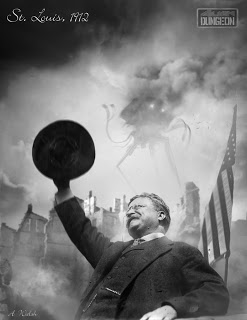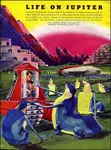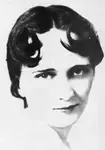-
Nov 16, 25 02:22 PM
our timeline extended into imagined pasts and futures
Read More
-
Nov 16, 25 12:18 PM
links to each chapter so far
Read More
-
Nov 16, 25 08:53 AM
Yet more scenes from Solar System worlds
Read More
-
Nov 15, 25 02:03 PM
The double life of our place-names
Read More
-
Nov 14, 25 05:13 AM
how each world is doing on the scenic front
Read More
-
Nov 14, 25 05:09 AM
The Jovian scene
Read More
-
Nov 12, 25 05:28 AM
the named or designated stars that appear in literature
Read More
-
Nov 11, 25 12:57 PM
the literal in pursuit of the literary
Read More
-
Nov 10, 25 12:36 PM
Optimistic science and speculation
Read More
-
Nov 10, 25 03:43 AM
The Uranian scene
Read More
-
Nov 06, 25 08:21 AM
Names in the Old Solar System
Read More
-
Nov 05, 25 08:17 AM
reflections on life, the oss and everything
Read More
-
Nov 03, 25 03:39 PM
the lush pessimism of zothique, averoigne and other realms galore
Read More
-
Nov 03, 25 03:56 AM
The Martian Scene
Read More
-
Nov 01, 25 09:25 AM
the monthly popularity-contest for world-teams
Read More
-
Oct 30, 25 07:56 AM
a celebration of some key stories set on colourful Earth
Read More
-
Oct 28, 25 03:50 PM
Introduction to a unique blend of humour and wonder
Read More
-
Oct 26, 25 08:14 AM
CLUFFS - Cute Little Unfulfilled Fragments of Fascination
Read More
-
Oct 25, 25 04:49 AM
The Europan scene
Read More
-
Oct 24, 25 01:46 PM
Secret Lords of the Twilight Belt
Read More
-
Oct 23, 25 12:17 PM
authors who have contributed to the old solar system
Read More
-
Oct 20, 25 12:26 PM
The ages of deep time
Read More
-
Oct 20, 25 09:09 AM
The Venusian scene
Read More
-
Oct 19, 25 09:49 AM
prophecies which are quite certain
Read More
-
Oct 19, 25 08:48 AM
a master of colourful science fantasy expressed in gorgeous language
Read More
-
Oct 19, 25 08:09 AM
topics to be found in OSS literature
Read More
-
Oct 10, 25 12:32 PM
An ancient Martian civilization on an alternate time-track
Read More
-
Oct 09, 25 12:49 PM
a lone planeteer who lives by his wits
Read More
-
Oct 08, 25 01:05 PM
Watch your step during the Great Backgrounder Revolution...
Read More
-
Oct 07, 25 02:39 PM
The Neptunian scene
Read More
-
Oct 07, 25 06:52 AM
What you need to do or be to roam the System
Read More
-
Oct 06, 25 09:16 AM
ERB the Experimenter
Read More
-
Oct 04, 25 11:43 AM
Unexpected life in the dark and cold
Read More
-
Oct 03, 25 10:55 AM
A colourful grabber of worlds for their psychological settings
Read More
-
Oct 02, 25 12:56 PM
Leigh Brackett's Old Solar System
Read More
-
Oct 01, 25 06:25 AM
The Plutonian scene
Read More
-
Sep 29, 25 09:43 AM
The Mercurian scene
Read More
-
Sep 22, 25 05:13 AM
The lunar scene
Read More
-
Sep 19, 25 11:04 AM
Pellucidar - Edgar Rice Burroughs' seven-volume hollow-Earth series
Read More
-
Sep 18, 25 10:25 AM
author of a mesmerising masterpiece
Read More
-
Sep 17, 25 07:05 AM
Amtor - ERB's Venus
Read More
-
Sep 15, 25 06:25 AM
Barsoom - the Mars of Edgar Rice Burroughs' ten-volume series
Read More
-
Sep 13, 25 06:34 AM
The Ganymedean scene
Read More
-
Sep 12, 25 05:51 AM
The Titanic scene
Read More
-
Sep 07, 25 06:26 AM
The Terran Scene
Read More
-
Sep 06, 25 11:21 AM
Uranian Throne - episode one
Read More
-
Sep 03, 25 08:18 AM
the Ledian scene
Read More
-
Sep 02, 25 11:23 AM
Leda - an anticipated satellite of Jupiter
Read More
-
Aug 31, 25 04:13 AM
innumerable worlds in the inner planets' back yard
Read More
-
Aug 29, 25 02:53 PM
the early part of Sunnoad Yadon's reign
Read More






































